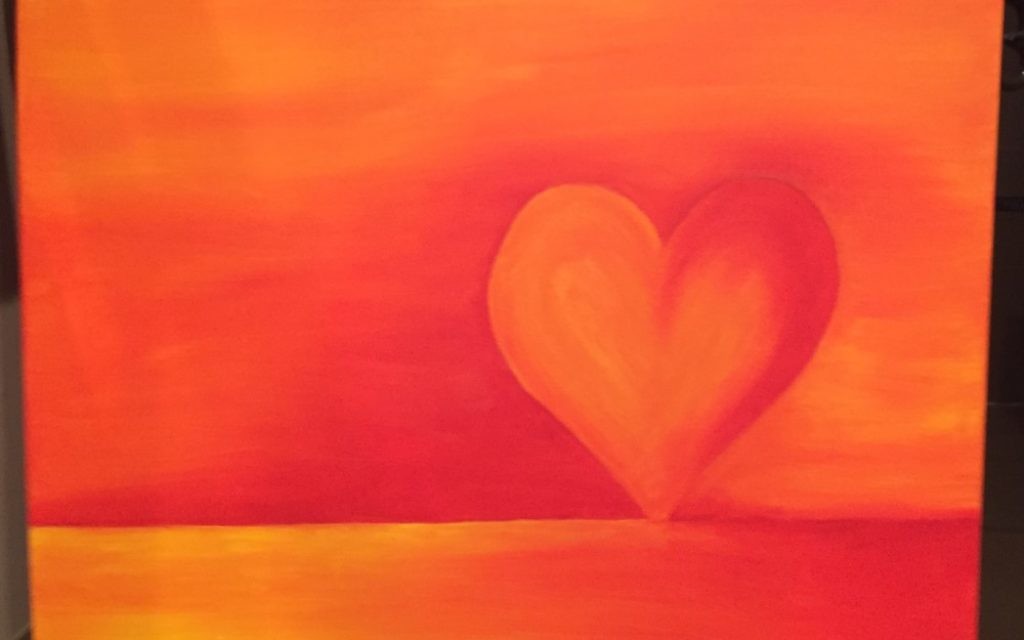Cultivating a Heart of Compassion
The Torah shows that we should not blindly follow our hearts.
The heart is a miraculous organ whose function is to push and pump blood throughout the body.
A ball of muscular tissue, the heart contracts and relaxes with the continuous rhythm of a metronome, feeding our bodies with oxygen and nutrients and filling us with the energy essential for life. Yet most of us have no awareness of the heart’s incessant narrowing and expansion unless it begins to spasm or malfunction.
We are told by medical professionals to take care of the heart by exercising and eating right. Indeed, we invest much of our time and money in pursuits that are supposed to keep this muscle from breaking down.
Get The AJT Newsletter by email and never miss our top stories Free Sign Up
In contemporary culture, the heart is much more than an organ; it is also perceived as the seat of intuition. Self-help books guide us to follow the heart’s desires and trust our hearts. Love coaches tell us to listen to the heart. Yoga teachers remind us to set our intentions on the heart’s truth.
In the context of Jewish spiritual life, the heart is a remarkable organ to pay careful attention to, but for different reasons. One of my teachers, Rabbi Mordecai Finley, taught that the heart in Torah tradition is the seat of the ego. We could substitute the word “ego” for “heart” in Noah narrative: “G-d saw that the evil of man was great in the earth and that every imagination of the thoughts of his heart (or ego) was evil continually” (Genesis 6:5).
Over and over in Exodus, Pharaoh’s heart hardens against the Israelites’ pleas for freedom. The hardening of Pharaoh’s heart made him incapable of compassion and unable to hear their cries. Pharaoh’s heart did not harden overnight but continued the process of calcification as he became more and more accustomed to rule without mercy and to the life of an unchecked ego.
From this perspective, the heart is a malleable organ capable of transformation, of hardening and, alternatively, softening.
The Bible is filled with calls for the softening of the heart. Jeremiah tells his people to soften their hearts and unravel them from layers of protection (Jeremiah 4:4). Ezekiel promises a time when the human heart of stone will be replaced with a heart of flesh (Ezekiel 36:26). Somehow, the softened heart is connected to our ability to feel a connection to the divine and to feel compassion.
If you have ever witnessed the transformation of solids into softer forms, you know that it is not always a process without violence.
Recently, my husband and I went on a hike around a beautiful, frozen lake in the Blue Ridge Mountains on a cold winter morning. We were alone, surrounded by forest and far from the bustle of life and traffic. Suddenly, we heard a deep, loud moaning that pierced the silence of the forest.
The sound whistled and crackled in low tones, and we realized that it was the frozen lake, responding to the change in temperature as the sun rose. It sounded like the subterranean cry of a whale.
I imagine that the practice of heart-softening has a similar effect and is not without its expression of transformation, which may be felt as pain or discomfort.
We soften our hearts by bringing attention and awareness to the purpose of the heart’s hardening in the first place. When we soften our hearts, we tune into our fears and past hurts, defenses that we worked hard to build up. The melting of the hardened surface of the heart may be soundless or may produce deep moans.
Whatever our personal process may be, Jewish spiritual tradition tells us that we can choose our responses to life’s realities and that it is not wise to follow the heart’s desires blindly. We are called to cultivate our hearts, checking for protective layers to prevent calcification and callousness.
Living with a softened heart may seem precarious, but, according to our tradition, it is an ongoing process toward a life of connection and meaning.
May we become aware of the heart’s incessant narrowing and expansion, not only as a muscle responsible for the flow of life’s energy through our body, but also as the organ measuring out compassion and lovingkindness for all life.





comments